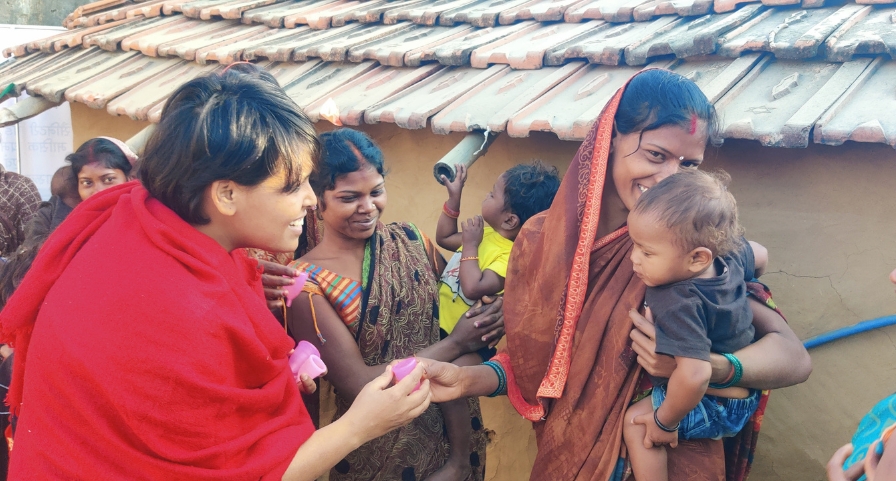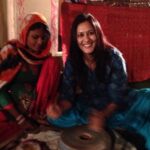Growing up in the small town of Gaya in Bihar, I never imagined that menstruation—a natural biological process—could dictate the course of my life’s work. But the stigma I faced during my first period, the discomfort of managing it with cloth rags, and the silence surrounding the subject left an indelible mark on me.
What I encountered shocked me—women reusing cloth rags without proper hygiene, avoiding bathing during menstruation, and even using sand or ashes as absorbents.
It was a stain not just on my school uniform but on the very fabric of societal norms that kept women and girls uninformed and ashamed. Years later, I would transform that shame into a movement for dignity, health, and empowerment.
A journey rooted in personal experience
Like many young girls, my first period was an ordeal of confusion and embarrassment. A stain on my pristine white school uniform led to whispered concerns from a friend, and I rushed home, overwhelmed with shame.
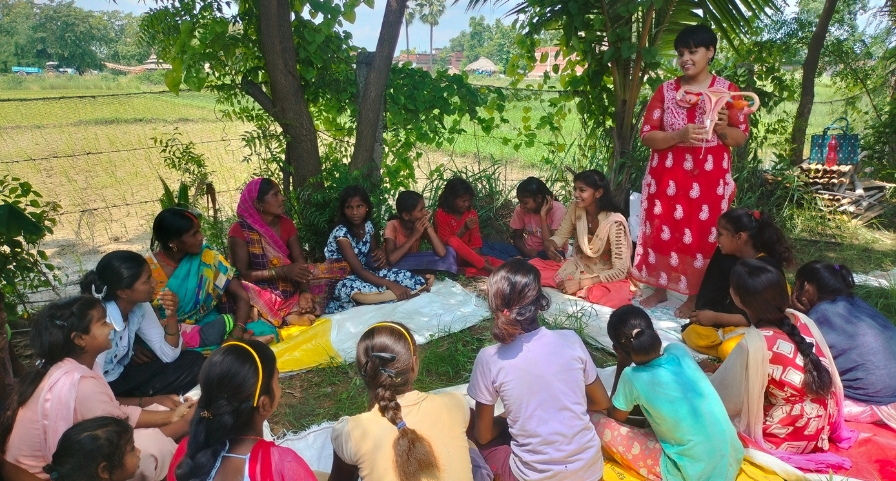
My mother, though supportive, handed me a cloth rag instead of sanitary pads—an unreliable and uncomfortable method that left me anxious every month. I truly understood my body and what menstruation meant only from a grade 12th biology book. But despite the knowledge, the stigma remained.
The cycle of shame and poor health perpetuated itself through generations. I realised then that menstrual health wasn’t just a hygiene issue—it was a human rights issue.
Determined to break the silence, I found my calling in menstrual health advocacy. As a college student in 2011, I joined JPAL (Abdul Latif Jameel Poverty Action Lab), an international NGO, working on a menstrual health project in Jehanabad, Bihar. What I encountered shocked me—women reusing cloth rags without proper hygiene, avoiding bathing during menstruation, and even using sand or ashes as absorbents.
The cycle of shame and poor health perpetuated itself through generations. I realised then that menstrual health wasn’t just a hygiene issue—it was a human rights issue.
Also watch: Managing menstrual waste in the Andamans
Turning passion into action: SumArth’s menstrual health initiative
By 2019, I co-founded SumArth, a social impact organisation dedicated to improving the livelihoods of marginalised communities in Bihar. While working with women farmers, I noticed a concerning pattern—many women were absent from the fields during menstruation. It wasn’t by choice but due to the lack of resources to manage their periods. I knew something had to change.
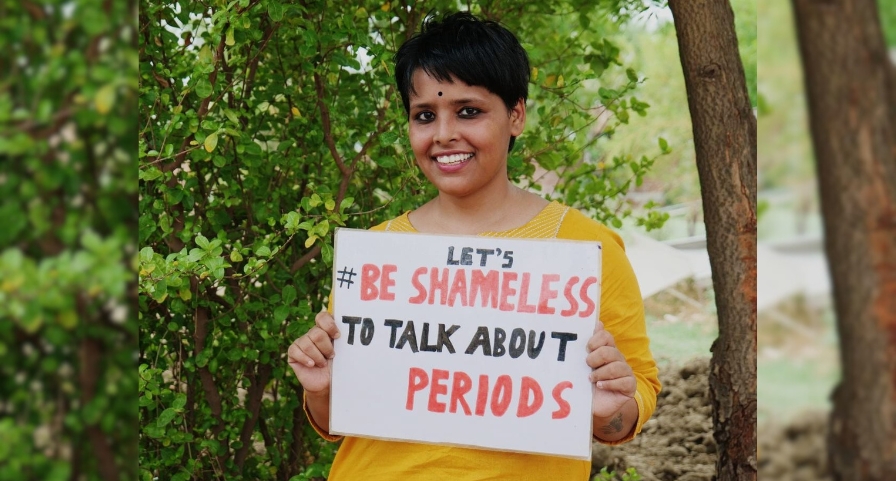
Through SumArth’s menstrual health programs, my team and I have reached out to over 20,000 women and 5,000 adolescent girls. Our work has led to transformative changes—women who once avoided bathing during their periods now embrace hygiene, those who silently endured forced sexual encounters during menstruation now confidently say no, and harmful practices like using rags, sand, and ashes have been replaced with sanitary pads and menstrual cups.
One of my most significant achievements was establishing a fully automatic sanitary pad-making machine, run by rural women. This initiative wasn’t just about access to menstrual products, it was about empowerment, employment, and reclaiming dignity.
Women no longer had to rely on unreliable or unhygienic methods. They were now producers of change, creating products that supported their own health and that of their communities.
Breaking taboos, one woman at a time
Our work has transformed the lives of countless women, including Riya, Priya, and Sitara Devi (names changed for privacy).
Riya, a young girl from a marginalised community, associated the word ‘period’ with school lessons but had no real understanding of it. When SumArth’s educators taught her about menstruation, she faced her menarche with confidence, not fear.
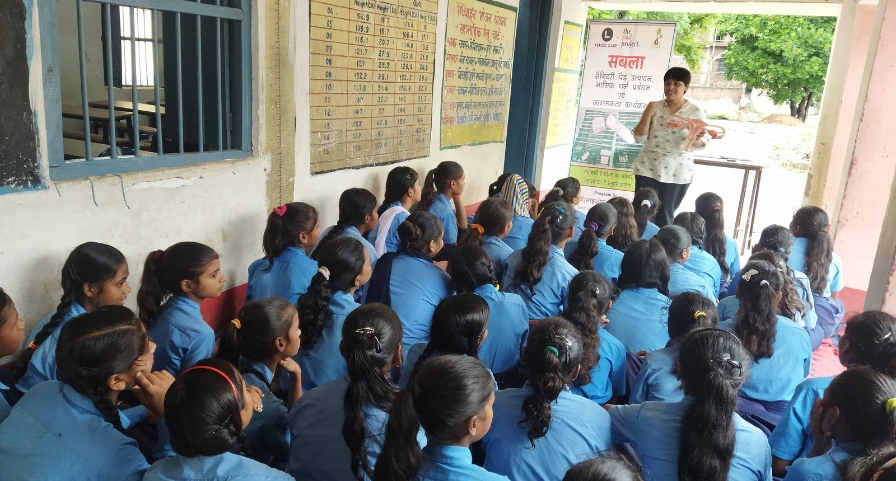
Priya had grown up believing that bathing during periods would cause infections. Our sessions debunked this myth, empowering her to prioritise hygiene without fear.
Sitara Devi, who once avoided bathing during menstruation to escape her husband’s demands for sex, learned that her body was hers to control. She now confidently refuses his demands without guilt.
For many girls, access to proper menstrual education and hygiene products was life-changing. Chandni, who used to wear the same pad for 12 hours, risking infections, now understands the importance of changing them every few hours. Pari, who thought menstruation was exclusive to married women, gained clarity through interactive learning models. Knowledge became a tool of liberation.
Also read: Fostering menstrual health and women’s empowerment in rural India
The fight for menstrual equity, a revolution in the making
Menstrual health is not just about sanitary products—it’s about agency, autonomy, and dignity. My work at SumArth underscores that menstrual health is not just a women’s issue—it’s a human rights issue. When girls like Riya gain knowledge, when women like Sitara Devi reclaim agency, and when communities abandon harmful practices, the foundation for gender equality strengthens.

By normalising menstrual health conversations, I ensure that no girl or woman feels ashamed of her period ever again. My journey, from a girl with a stained white dress to a menstrual health advocate, has been transformative. And with every conversation, every educational session, and every sanitary pad distributed, I am turning whispers into conversations, stigma into awareness, and silence into solidarity.
“We’re not just teaching hygiene,” I insist. “We’re teaching worth.”
As dusk falls over Gaya, I scroll through SumArth’s Instagram—@Sabla_SumArth—alight with photos of women grinning beside pad machines and girls holding menstrual cups aloft like trophies. The comments buzz with solidarity: “You’ve changed my life.” “My daughter isn’t ashamed anymore.”
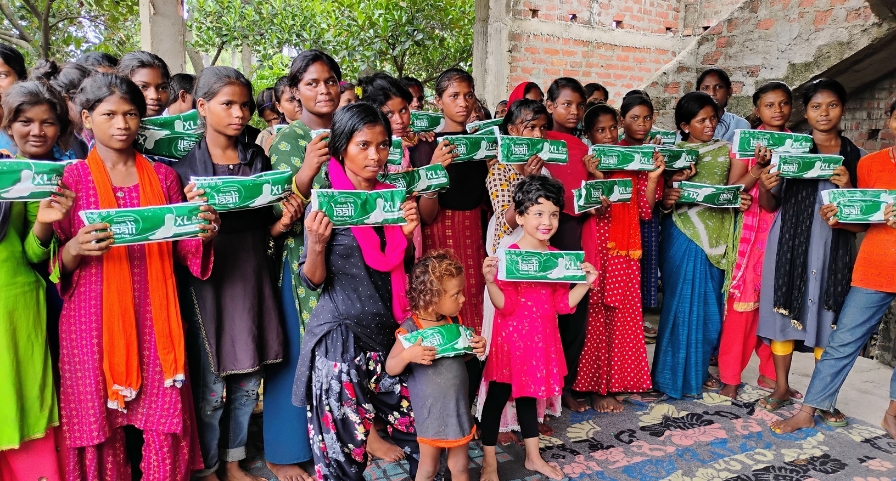
I smile. The revolution isn’t loud. It’s in the rustle of a sanitary pad unwrapped, a mother’s whispered “thank you,” a girl striding to school, unafraid.
Periods. Power. Progress. This trinity fuels my quiet war against shame—one conversation, one pad, one reclaimed life at a time.
Also read: ‘Padman of Kolhan’ goes the extra mile for menstrual health
In the lead image on top shyness meets happiness in Amwan village, Bodhgaya. A moment of quiet curiosity and joyful acceptance as women hold menstrual cups for the first time—breaking barriers, asking questions, and embracing change. (Photo by SumArth)
Surbhi Kumari is the co-founder of SumArth, a social impact organisation dedicated to improving the livelihoods of marginalised communities, particularly women, in the rural and naxal-affected areas of Bihar. With a background in Journalism and a PhD in Media Accountability for Women’s Health in Bihar, she has been at the forefront of menstrual health advocacy, sustainable agriculture, and gender equality.

